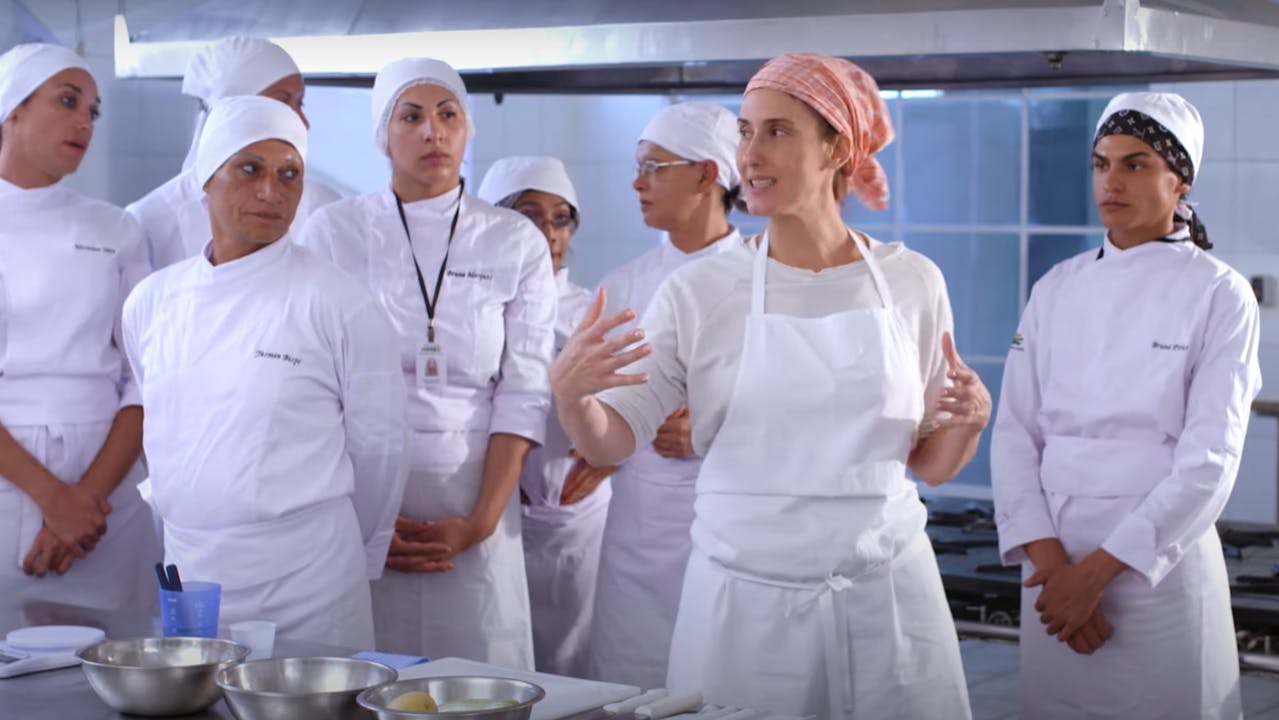Learning how to cook is so much more than learning a trade. Food arouses powerful memories and feelings, because it‘s something you can bring to your family and friends, because it involves how you relate to your environment.
Learning how to cook is about changing your life.
This is just what I hope to achieve with “Kitchen & Voice”. It’s a joint initiative of the Brazilian Public Ministry of Labour and the International Labour Organization, that helps give the most marginalized people – the homeless, abused women, Lesbian, Gay, Bi-sexual, Transgender and Intersex (LGBTI) people – the chance to have a real job.
I’ve been doing this since December 2017. The initial idea was to give cooking classes in a prison in Salvador de Bahia. But I thought a training programme would be a gateway to the restaurant industry. In Brazil, people love eating out – it accounts for 3 per cent of GDP.
And that’s how we started, in Sao Paulo, with a group of 30 transgender participants. We’ve grown since then and now we give an average of four classes a year in different states with 50 to 60 people per class. This year we had to do the training online, due to the pandemic. But we did it anyway.

Paola Carosella leads a cooking class.
© Juliano BacelarThe course involves classes in nine disciplines and provides the basic skills for work in a restaurant kitchen, including salad dressing techniques, preparation of fish, meat and vegetables, waste handling and food storage.
I make a point of using local ingredients like manioc, rice and bananas, that are easy to obtain and also have links to the roots of indigenous cuisine. They are part of a heritage that is being lost. And we don’t cook meat.
Since food can be extraordinarily evocative, during their training some of our students rediscovered flavours from dishes their mothers or grandmothers used to make. Some brought the food they cooked to their families, with whom they had sometimes not spoken for years.
Perhaps my own background has helped me to understand the people who join the classes. I was born in Argentina into a family of Italian immigrants. My mother was a lawyer. She gave me a great sense of justice. A sense of urgency too, that something had to be done to help others. I have been a cook for 30 years and although I have been successful, I never forget that those who work in the kitchen usually come from very humble origins.
I do believe diversity is the best ingredient, in cooking and in life. Working with people from very different backgrounds enriches you as a person.

In the last four years, we have managed to bring many participants into jobs offered by a network of partner companies. Two of them work in my restaurants.
I think it shows a change towards more diversity in companies’ corporate culture, because I do believe diversity is the best ingredient, in cooking and in life. Working with people from very different backgrounds enriches you as a person.
It hasn’t been easy. But thanks to the support of the ILO, the funding from the Ministry of Labour and also the fact that I am a well-known chef, we’ve managed to overcome many prejudices.
The next thing I want to do is help more companies participate in the project. Perhaps by giving them incentives, such as tax breaks or some kind of a rating system that would show they are involved in a project favouring the inclusion of vulnerable people.
I truly hope we will encourage other businesses to join “Kitchen & Voice” and help to promote the employability of a very talented, but still largely excluded, portion of the population.
